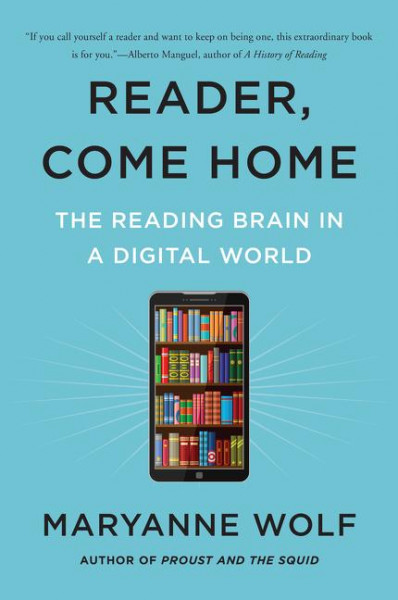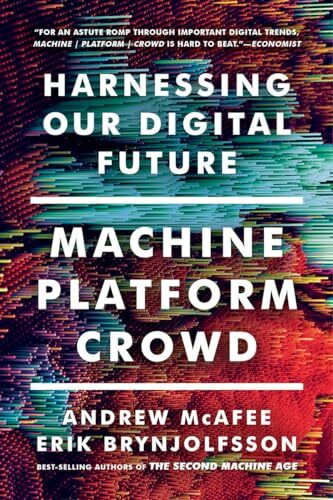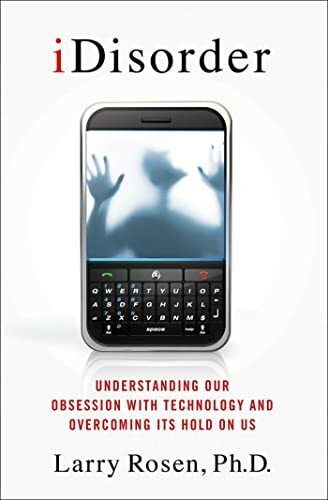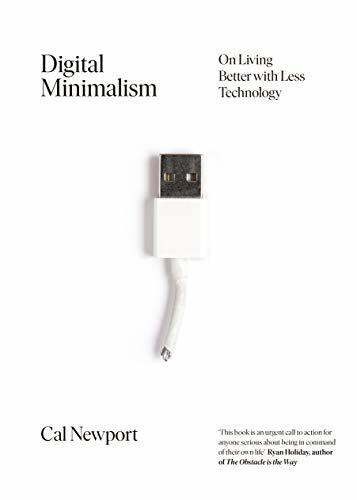
Reader, Come Home: The Reading Brain in a Digital World
Kurzinformation
inkl. MwSt. Versandinformationen
Artikel zZt. nicht lieferbar
Artikel zZt. nicht lieferbar

Beschreibung
The author of the acclaimed Proust and the Squid follows up with a lively, ambitious, and deeply informative book that considers the future of the reading brain and our capacity for critical thinking, empathy, and reflection as we become increasingly dependent on digital technologies.A decade ago, Maryanne Wolf's Proust and the Squid revealed what we know about how the brain learns to read and how reading changes the way we think and feel. Since then, the ways we process written language have changed dramatically with many concerned about both their own changes and that of children. New research on the reading brain chronicles these changes in the brains of children and adults as they learn to read while immersed in a digitally dominated medium.Drawing deeply on this research, this book comprises a series of letters Wolf writes to us?her beloved readers?to describe her concerns and her hopes about what is happening to the reading brain as it unavoidably changes to adapt to digital mediums. Wolf raises difficult questions, including:Will children learn to incorporate the full range of "deep reading" processes that are at the core of the expert reading brain?Will the mix of a seemingly infinite set of distractions for children's attention and their quick access to immediate, voluminous information alter their ability to think for themselves?With information at their fingertips, will the next generation learn to build their own storehouse of knowledge, which could impede the ability to make analogies and draw inferences from what they know?Will all these influences change the formation in children and the use in adults of "slower" cognitive processes like critical thinking, personal reflection, imagination, and empathy that comprise deep reading and that influence both how we think and how we live our lives?How can we preserve deep reading processes in future iterations of the reading brain?Concerns about attention span, critical reasoning, and over-reliance on technology are never just about children?Wolf herself has found that, though she is a reading expert, her ability to read deeply has been impacted as she has become increasingly dependent on screens.Wolf draws on neuroscience, literature, education, and philosophy and blends historical, literary, and scientific facts with down-to-earth examples and warm anecdotes to illuminate complex ideas that culminate in a proposal for a biliterate reading brain. Provocative and intriguing, Reader, Come Home is a roadmap that provides a cautionary but hopeful perspective on the impact of technology on our brains and our most essential intellectual capacities?and what this could mean for our future. von Wolf, Maryanne
Produktdetails

So garantieren wir Dir zu jeder Zeit Premiumqualität.
Über den Autor
Maryanne Wolf, the John DiBiaggio Professor of Citizenship and Public Service at Tufts University, was the director of the Tufts Center for Reading and Language Research. She currently directs the Center for Dyslexia, Diverse Learners, and Social Justice at UCLA, and is working with the Dyslexia Center at the UCSF School of Medicine and with Curious Learning: A Global Literacy Project, which she co-founded. She is the recipient of multiple research and teaching honors, including the highest awards by the International Dyslexia Association and the Australian Learning Disabilities Association. She is the author of Proust and the Squid (HarperCollins), Tales of Literacy for the 21st Century (Oxford University Press), and more than 160 scientific publications.

- Gebunden
- 272 Seiten
- Erschienen 2022
- Harvard Business Review Press

- hardcover
- 160 Seiten
- Erschienen 2019
- Circa Press

- Kartoniert
- 416 Seiten
- Erschienen 2018
- Norton & Company

- Gebunden
- 222 Seiten
- Erschienen 2017
- Pantheon Verlag

- hardcover
- 466 Seiten
- Erschienen 2011
- CAMBRIDGE UNIV PR

- Gebunden
- 543 Seiten
- Erschienen 2023
- HOFFMANN UND CAMPE VERLAG GmbH







































